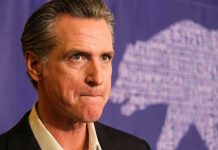
After taking his grandson to see Pixar’s “Lightyear,” Snoop Dogg’s discomfort with LGBTQ+ content in children’s films has reignited the debate over what is appropriate in family entertainment—and whether Hollywood is ignoring the values of millions of American families.
Story Snapshot
- Snoop Dogg expressed being ‘scared to go to the movies’ after his grandson’s questions about a same-sex couple in Pixar’s “Lightyear.”
- The incident has intensified concerns among parents about LGBTQ+ themes in children’s media.
- Disney and Pixar’s push for “inclusivity” in family films continues to spark cultural and generational conflict.
- Debate centers on parental rights, age-appropriateness, and the impact of media on family values.
Snoop Dogg’s Experience Highlights Parental Concerns
Snoop Dogg, a prominent rapper and grandfather, recently described how a visit to the theater with his grandson turned uncomfortable due to the depiction of a same-sex couple in Pixar’s “Lightyear.” On the ‘It’s Giving’ podcast, Snoop recounted his unease when his grandson began asking questions about the on-screen relationship, leaving him unprepared to address the topic with a young child. Snoop’s candid admission that he now feels “scared to go to the movies” echoes the frustrations of many parents who feel blindsided by abrupt cultural shifts in what is considered age-appropriate content for children.
Pixar’s decision to prominently feature a same-sex couple in “Lightyear” was not incidental. The studio, under Disney’s direction, included a brief kiss between two women and a storyline involving their family, marking a clear departure from traditional themes in animated children’s films. The inclusion followed internal controversy, with some Pixar employees previously accusing Disney of censoring LGBTQ+ content. After public pressure, Disney reinstated the scene, despite knowing it would provoke strong reactions across its diverse audience. “Lightyear” was subsequently banned in several countries, and its U.S. release became a flashpoint in the ongoing cultural debate over family entertainment standards.
Parental Rights and the Push for “Inclusivity”
The incident has fueled a renewed debate about the role of LGBTQ+ representation in children’s media and the importance of parental choice. Many families, especially those holding traditional or faith-based values, argue that movie studios are usurping the rights of parents to decide when and how to introduce complex social topics to their children. While advocacy groups hail the inclusion as overdue and vital for visibility, critics—now joined by Snoop Dogg—question whether such content is age-appropriate or respectful of differing family beliefs. The tension is not merely generational but ideological, with parents increasingly wary of what they see as Hollywood’s disregard for their values and authority.
Disney and Pixar have defended their creative decisions by claiming a commitment to inclusivity and reflecting “real-world” families. Producer Galyn Susman described the relationship in “Lightyear” as “loving and inspirational,” but this framing has not quelled dissent. Instead, it has widened the gulf between entertainment executives and their consumer base. For many, the issue is not about representation per se, but about the timing, manner, and setting in which sensitive subjects are introduced to children—especially in venues where parents expect neutral or age-appropriate storytelling.
Broader Cultural and Industry Impacts
The fallout from Snoop Dogg’s remarks is part of a larger pattern of polarization over children’s media. Short-term, there has been a spike in media attention and social media debate, with voices on both sides amplifying their positions. Long-term, these controversies may influence future studio decisions, as companies weigh the risks of alienating core audiences against the push for progressive representation. The entertainment industry, already facing declining box office numbers and shifting viewer habits, must now navigate the added challenge of intense scrutiny over content aimed at families. Studios are likely to face increased calls for transparency, clear content warnings, and respect for parental authority in entertainment choices.
Rapper Snoop Dogg 'Scared to Go to the Movies' After Taking His Grandson to Woke Pixar Film https://t.co/ijBjqYlWYr
— ConservativeLibrarian (@ConserLibrarian) August 25, 2025
Industry experts and commentators remain divided. Some see greater LGBTQ+ visibility as necessary for social progress, while others, including family advocates and conservative voices, argue for the preservation of childhood innocence and the primacy of parental control. The consistent thread in these debates is the right of families to choose media that aligns with their values, free from surprise agendas or ideological messaging. As media companies chart their path forward, ongoing feedback from parents, faith leaders, and public figures like Snoop Dogg will play a crucial role in shaping what children see on screen—and what values are ultimately reflected back to America’s families.
Sources:
Rapper Snoop Dogg ‘Scared to Go to the Movies’ After Taking His Grandson to Woke Pixar Film













